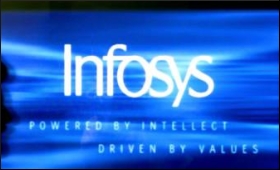|

|
Need of the hour is to keep the core of Infosys intact
|
|

|
|
| Top Stories |
 |
|
|
|
Amit Kapoor | 22 Aug, 2017
Vishal Sikkas exit from Infosys seems to have been accentuated by the
streak of comments made by co-founder N.R. Narayan Murthy. The comments
bordered on complaints, raising issues of corporate governance and at
time accusations. The episode, like a soap opera with significant twists
and turns, has been played in public glare over the last few months.
The
resignation has had its first casualty by way of wiping off the value
of Infosys stock on the bourses. The impact was close to Rs 22,000 for
Infosys and Rs 700 crore of mark down for Murthy's stock. The episode
rakes up significant issues about corporate governance and transparency,
the agency problem (precisely the question of control between
shareholders and professional management), important issues about the
strategy of Infosys and the pressure to perform in a volatile global
environment
1. VUCA Environment. The pressure seems to have
been built on the enterprise while operating in a Volatile, Uncertain,
Complex and Ambiguous (VUCA) environment. Today's business environment
is bombarded with ideas countering the notion of globalisation and the
negative impact of free trade. The benefits of globalization, driven by
the free movement of goods, services, and information are countered by
deeply seated myths and assumptions which smack right in the face of
trade theorists. To top it all, the pressure has been further created by
the current US administration's views on outsourcing and immigration.
To bluntly put it, the world is in the throes of economic nationalism.
2.
Business Model. The archaic business model of Infosys, driven by the
idea of scale and labor arbitrage has come under severe strain. The
debate for years has been the innovative potential of Infosys and the
value the enterprise can create. To put this into perspective, we must
look at the trajectories of growth, impact the firm has had on the
global industry et al. The enterprises to compare here are Microsoft and
Infosys who effectively started at the same time and have had
trajectories of growth that are significantly different.
I must
as well admit that I have not been a great fan of Infosys of the past as
it was built on the idea of exploitation of labor with abysmal levels
of productivity numbers for its engineers. This is where the present
team of Vishal Sikka, Ravi Venkatesan et al have been working quite
hard and making admirable strides on redefining the business model. The
effect of the new business model was as well visible through the rising
productivity numbers of the enterprise and its talent.
3.
Corporate Governance and Transparency. This issue needs to be assessed
very carefully. It is clear that Murthy looks at Infosys having an
impeccable record on governance and transparency. No one can find a
reason to not follow the highest standards as espoused by Murthy. The
practice needs to be followed to the hilt, though the issues need to be
discussed within the confines of the boardroom. This discussion becomes
important as Murthy cannot be seen as an activist shareholder who is at
loggerheads with the management.
The episode leads us to look
deeply at the issues of corporate control in the country. It is not the
first time that we have had battles fought between shareholders and
professional managers. The Infosys saga can as well be seen through the
lens of conflict of interest and control. To say the least, a conflict
of this nature will not only undermine but has the potential to ruin the
enterprise. It cannot be ignored that Murthy is the co-founder and has
had a great stake in building the enterprise -- though the action of
making the grievance public seems to have had a counterproductive
effect.
The situation at hand demands an immense level of
maturity by all parties involved. This would require all parties
concerned to tone down the rhetoric, stand down from their respective
positions and sit across the table to discuss the issues. If this is not
done on an immediate basis, the loss would entirely be felt by Infosys,
the poster boy of Indian IT Industry, that I am sure wouldn't liked by
Murhty, the board or Infosys stakeholders. We must keep in mind that all
organisations need to change, evolve their business model and adapt to
the new realities. This will certainly have to be done while keeping in
mind that the core of Infosys is kept intact which in itself seems to be
jeopardised at the moment.
(Amit Kapoor is chair, Institute for
Competitiveness, India. The views expressed are personal. He can be
contacted at amit.kapoor@competitiveness.in and tweets @kautiliya.)
|
|
|
| |
|
|
|
|
|
|
|
|
|
|
|
|
|
|
| |
| Customs Exchange Rates |
| Currency |
Import |
Export |
US Dollar
|
84.35
|
82.60 |
UK Pound
|
106.35
|
102.90 |
Euro
|
92.50
|
89.35 |
| Japanese
Yen |
55.05 |
53.40 |
| As on 12 Oct, 2024 |
|
|
|
|
|
|
|
| Commented Stories |
 |
|
|
|
|
|
| |
|